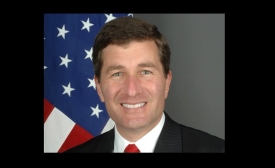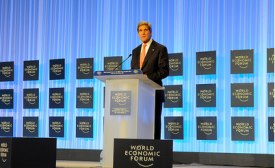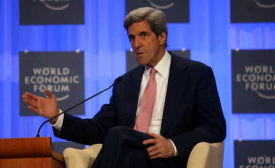economic diplomacy
After prolonged engagements in Afghanistan and Iraq, the US has finally made a move to renew its commitment towards Asia, which has always been an arena of US strategic and economic interest. The Asian rebalancing strategy highlights the current power shift in the international order from the west to the east. The economic engagement between the US and the Pacific nations is one the major pillars of the rebalancing strategy as the US identifies ‘economic statecraft’ as a major plank of its ‘Pivot to Asia’.

As Secretary of State John Kerry has pointed out, “Now more than ever, economic policy is foreign policy.” Rivkin’s appointment to lead the Economic and Business Affairs bureau comes after a long, entrepreneurial career in the entertainment industry, making him the first non-career bilateral ambassador to hold the position.
Successful public diplomacy is based on providing foreign publics what they need, be it information, a vaccination program, or help in securing economic well-being. A good example of working toward the latter can be found in a speech delivered by U.S. Assistant Secretary of State Anne Patterson in Jordan on February 25, during which she outlined some of the steps the United States is taking to "enhance regional trade and investment that will spur growth and jobs."
The deteriorating security situation throughout much of the Arab world underscores the need to urgently search for nonviolent methods of achieving stability. At the heart of the current unrest are not only political issues but also economic failures that are wiping out the vestiges of hope that remain after the region’s recent revolutions. In conflict situations, public diplomacy must be employed carefully. Sometimes the swirl of violence becomes so pervasive that it sucks up the oxygen needed for peaceful enterprise to survive.

The deteriorating security situation throughout much of the Arab world underscores the need to urgently search for nonviolent methods of achieving stability. At the heart of the current unrest are not only political issues but also economic failures that are wiping out the vestiges of hope that remain after the region’s recent revolutions.
At some point, the post-revolutionary Arab states will emerge from the self-destructive madness that has them so tightly in its grip. While Egypt, Syria, Libya, and Tunisia deal with varying degrees of instability, the future should be kept in sight. The key to an improved future in the region is less political than it is economic. Democracy is a worthy goal, but it will be reached only slowly.

At some point, the post-revolutionary Arab states will emerge from the self-destructive madness that has them so tightly in its grip. While Egypt, Syria, Libya, and Tunisia deal with varying degrees of instability, the future should be kept in sight.
On July 15th a triumvirate of politicians declared their support for Britain’s membership of the European Union (EU). Peter Mandelson, a former Labour Party minister, Ken Clarke, a Conservative Party minister and former chancellor, and Danny Alexander, the Liberal Democrat chief secretary to the Treasury, unveiled the manifesto of “British Influence”, a new campaign group. “Far from leaving Europe, Britain should be leading Europe,” it proclaimed.







